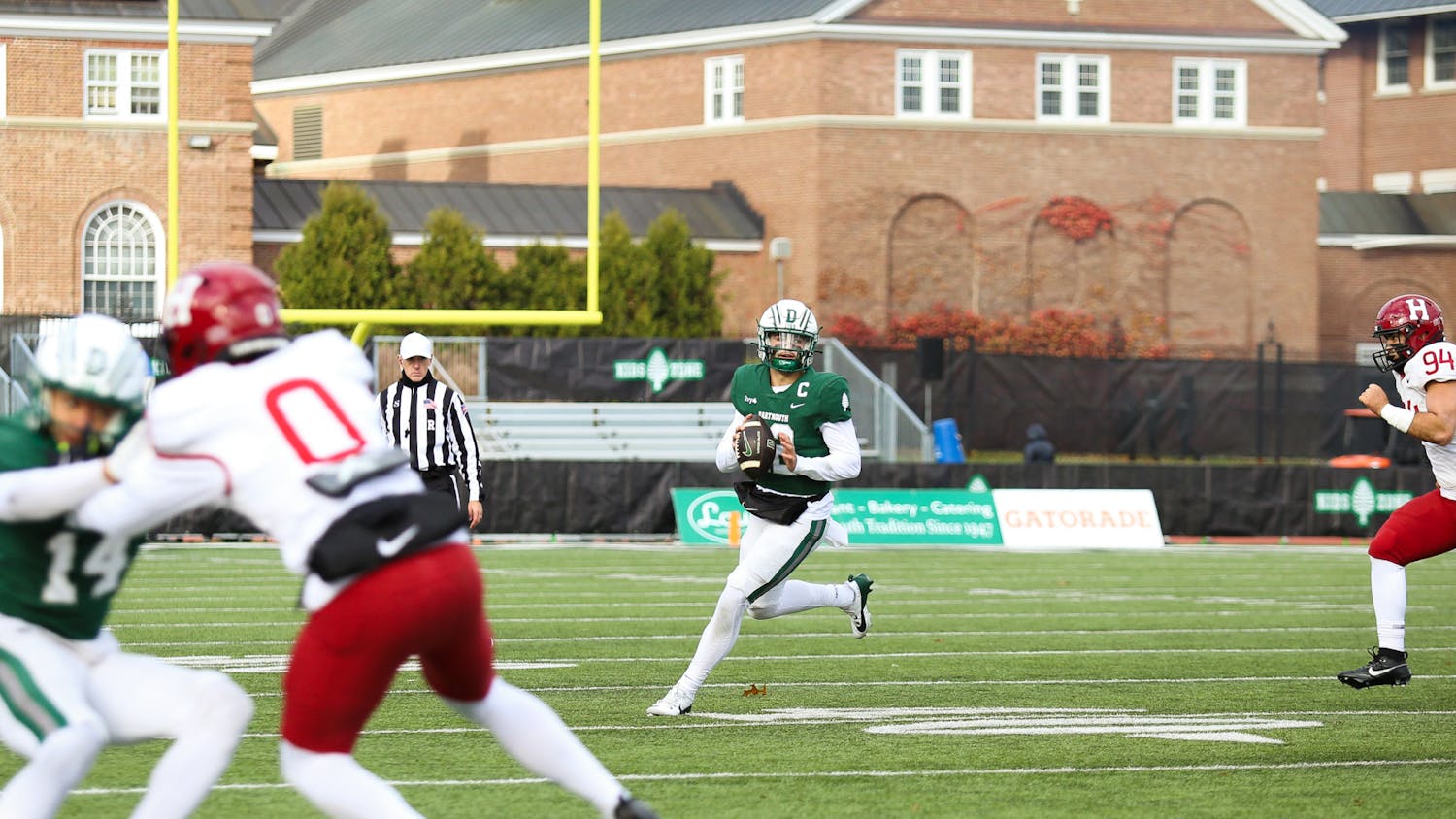On Jan. 26, the College presented its 2017 Martin Luther King Jr. Social Justice Awards to a group of recipients for their leadership in social justice work. The annual honors were given as part of Dartmouth’s two-week-long Martin Luther King, Jr. celebration.
This year’s awards went to Tuck School of Business professor of management Leonard Greenhalgh, director of the office for diversity and community engagement at the Geisel School of Medicine Shawn O’Leary, attorney Kevin Curnin ’86, Vermont secretary of education Rebecca Holcombe and the student organization Divest Dartmouth. Three of the individual awardees and Francesca Gundrum ’17, a representative from Divest Dartmouth, participated in a panel discussion at Filene Auditorium in Moore Hall.
The discussion, titled “Conversations with Change Makers,” featured a performance from the a cappella group the Rockapellas, followed by statements from the honorees and a question and answer session. Vice president for institutional diversity and equity Evelynn Ellis led the panel.
“Watching them engage each other, probably learning from each other still, and talking to the audience, is amazing,” Ellis said. “It’s so uplifting. I look forward to it every single year.”
Greenhalgh was unable to attend the panel due to an illness, so Ellis read his written statement. A member of the Tuck faculty since 1978, Greenhalgh received the Lifetime Achievement award.
Currently, Greenhalgh serves as Tuck’s faculty director of programs for minority, Native American and women-owned businesses. The programs offer one-week training sessions to business owners on skills such managing personnel and cash flow, Greenhalgh said.
“What we found doing research on small entrepreneurial companies — women-owned, minority-owned — is they tend to be very good at producing a product or delivering a service, but where they fall short is actually running the business,” he said.
Greenhalgh said he went to college during a time of social upheaval on campuses in the 1960s. He attended Cornell University for graduate school, participating in programs focused on finding employment for handicapped and rural workers. Greenhalgh began Tuck’s first minority business program only two years after joining the faculty.
“I’ve been working since 1980 to help minorities and women and Native Americans take their place in the U.S. economy,” Greenhalgh said.
Another awardee from Dartmouth’s graduate schools was O’Leary, who received the Holly Fell Sateia award, which was created in 2011 to honor Dartmouth faculty or staff members with strong records in diversity work.
In his position, O’Leary works on diversity programs in the health profession, as well as building connections with various community groups. Growing up on a Native American reservation in northern Minnesota, he said that he witnessed first-hand the effects of inadequate medical care.
“I saw my own family — uncles and cousins — die of heart disease before the age of 50,” O’Leary said. “And then I saw their families being thrown into a state of chaos because of that lack of leadership.”
O’Leary said that this experience influenced his career, which has included similar positions at the University of Minnesota and the University of Maine.
“I came to realize that the one thing that will influence health disparities and health equity in this country is when we train minority people to serve minority communities,” O’Leary said.
The Lester B. Granger ’18 Award for Lifetime Achievement, an honor given to a Dartmouth alumnus who has a career in serving under-represented populations, went to Curnin.
A partner in the law firm Stroock & Stroock & Lavan LLP, Curnin founded his firm’s Public Service Project, which works with small nonprofit organizations and advises micro-entrepreneurs in under-resourced communities. Curnin also currently serves as president of the Association of Pro Bono Council.
“People living in poverty already have enough challenges to deal with that it’s unfortunate that so often the court and legal system seem out of reach and unaffordable,” Curnin said. “So the role of pro bono attorneys and social justice lawyers and others in this space is to level the playing field.”
Curnin said that our society is entering a period where concepts like due process and fairness are being challenged at the highest levels, adding to the urgency of his work.
“There’s probably no better time than now to get involved in social justice lawyering,” he said.
For Holcombe, who received the Ongoing Commitment Award, education has a significant impact on social justice.
“Our schools are the last democratic institutions,” Holcombe said. “It’s the one place where people from all walks of life potentially come together under one roof to share some common experience.”
Before her work with the Vermont Agency of Education, Holcombe served as director of the College’s Teacher Education Program. In this role, she helped individuals who had specialized in a discipline but aspired to become teachers learn instruction skills through classroom-based experience and video lessons.
Holcombe said that she is inspired by her grandmother, who raised herself from humble circumstances with the help of public school education.
“Truly, democracy relies on giving everyone a fair shake,” she said. “I’m motivated by that realization that I benefit from making sure that other people benefit.”
Consisting of students and community members, Divest Dartmouth focuses on environmental issues by calling on the College to divest from fossil fuel companies. The organization is part of a larger, national movement across many college campuses. Last September, students from the group participated in a protest against the Dakota Access Pipeline on the Green.
The awards are co-sponsored by the Martin Luther King Jr. celebration committee, the Office of Institutional Diversity and Equity, the William Jewett Tucker Center, Dartmouth Center for Service and Geisel.
The nomination process for the awards is nearly year-round, according to Ellis. Nominations for the 2018 awards are already available online.
“Each year, once we’re done, I say, ‘Oh my goodness, how will we find another group that really was as dynamic and as wonderful as this group,’” Ellis said. “And then next year the same thing happens.”



